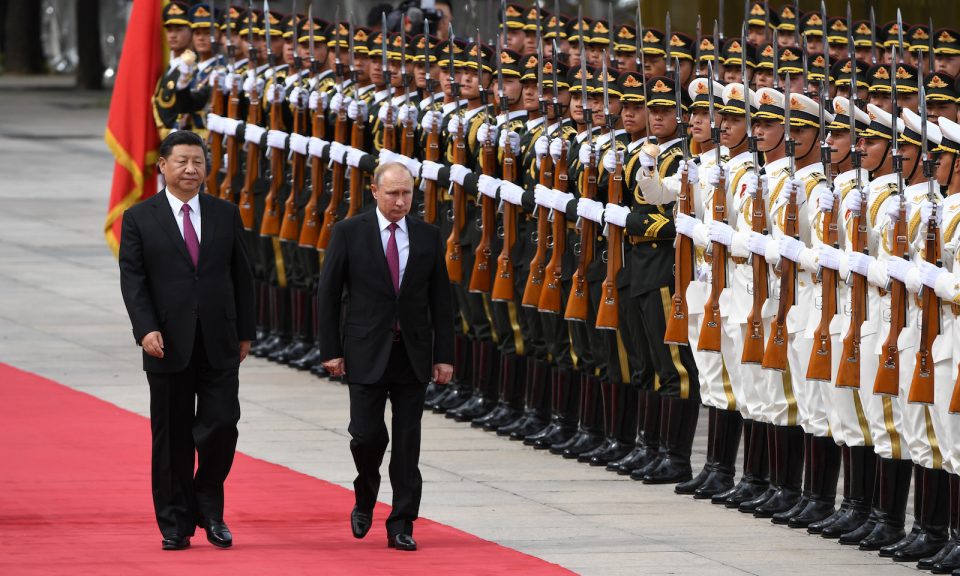Australia/Israel Review
Europa Europa: The Fall of Liberalism?
Dec 3, 2018 | Douglas Davis

We are accustomed to hearing that Western support for Israel is based on the Jewish state’s commitment to liberal democratic ideals in a neighbourhood where the prevailing political norms are thuggery, despotism and corruption.
The idea of liberal international order rests on a commitment to a number of key elements, including free trade, a free press, respect for human dignity, good governance and a rules-based order. These attributes appear to be under stress across Europe, with potentially serious implications for Israel, which cleaves to old-fashioned values of flag, family and faith.
Liberalism is in retreat. From one end of Europe to the other, populist demagogues are attracting attention and, in some cases, power: Russia’s Vladimir Putin, Turkey’s Recep Tayyip Erdogan, Hungary’s Viktor Orbán and Italy’s Matteo Salvini – but also through far-right movements in the Europe, such as those led by the Netherlands’ Geert Wilders, Britain’s Nigel Farage, Germany’s Alice Weidel and Alexander Gauland, and France’s Marine Le Pen.
True, Europe’s support for Israel appeared to be holding up during a 2017 polling exercise by the Israeli Foreign Ministry, and this might have been cause for celebration. In fact, however, only one European state, recorded support for Israel above 50% – Romania, at 56%.
The liberal world order established after World War II may be coming to an end, challenged by populist forces without and within. The external challenges come from the ambition of dissatisfied large and medium-size powers to overturn the existing strategic order dominated by the United States and its allies. Their aim is to gain hegemony in their respective regions.
China and Russia pose the greatest challenges because of their military, economic, and political power, and their evident willingness to use it. This makes them significant players in international politics, particularly as the regions where they seek hegemony – Asia and Europe – which have, historically, been critical to global stability. And, of course, there is Iran, which seeks hegemony in the Middle East and Gulf. If it achieved it, this would have a strategic, economic, and political impact on the international system.
Pause here for a moment and reflect on how rapaciously Britain, France and Germany – ostensibly firm friends of Israel – are working to thwart Washington’s determination to scrap the so-called 2015 nuclear agreement with Iran, while re-imposing sanctions and putting the mullahs’ regime back in its illiberal box. Fortunately, the business leaders of these three key European states seem to understand the needs of realpolitik rather better than their political masters and there has been a stampede to cancel commercial contracts already sealed.
It is commonly assumed that liberalism, human rights and democracy must prevail because they are noble and good. It seems only natural that the world’s oppressed multitudes yearn for freedom and one day will see their dreams realised. American historian Robert Kagan believes this is a dangerous fantasy. As he notes at the start of his latest book: “What we liberals call progress has been made possible by the protection afforded by liberalism…by American power.” What happens to freedom when that power retreats? The title of his new book provides the grim answer: The Jungle Grows Back.*
Where is all this taking us? “World order is one of those things people don’t think about until it is gone,” Kagan warns. “People take for granted how America’s security guarantees have prevented the merciless escalation of a dog-eat-dog world.”
“We do not face a choice between good and bad but between bad and worse,” he writes. “It is between maintaining the liberal world order, with all the moral and material costs that entails, or letting it collapse and courting the catastrophes that must inevitably follow.”
Over the past four centuries liberalism has seen off all its opponents – communism, fascism, Nazism. Now liberalism’s joints are creaking and there is an urgent need for renewal, not just in the West, but also in Israel. The first order of business for pragmatic liberals is the rejuvenation of the welfare state, liberalism’s greatest gift. The second is to maintain a sense of national solidarity by reducing the wealth disparity between rich and poor. The third is to foster a rational debate of issues, both domestic and foreign, based on good faith and reason, rather than on “fake news”, Twitter storms and viral postings.
It is necessary to halt the erosion of individual freedom, such as the “no platforming” movement on campus to protect the sensibilities of minorities at the cost of individual speech. And it is imperative to reverse the faltering faith in progress and allow new technologies and open markets to spread enlightenment and prosperity. The West will need to be on its toes: For the first time since the fall of the Soviet Union, liberalism faces a powerful economic challenge in the form of Chinese state-capitalism.
Until the economic crash of 2008, liberals were convinced that they had all the answers. Then they stopped thinking. Now Western states – including Israel – are learning to dodge between the raindrops of populism.
* The Jungle Grows Back: America and Our Imperilled World, by Robert Kagan. Knopf; 192 pages; $22.95
Tags: Europe, Far Right, International Security, Israel






